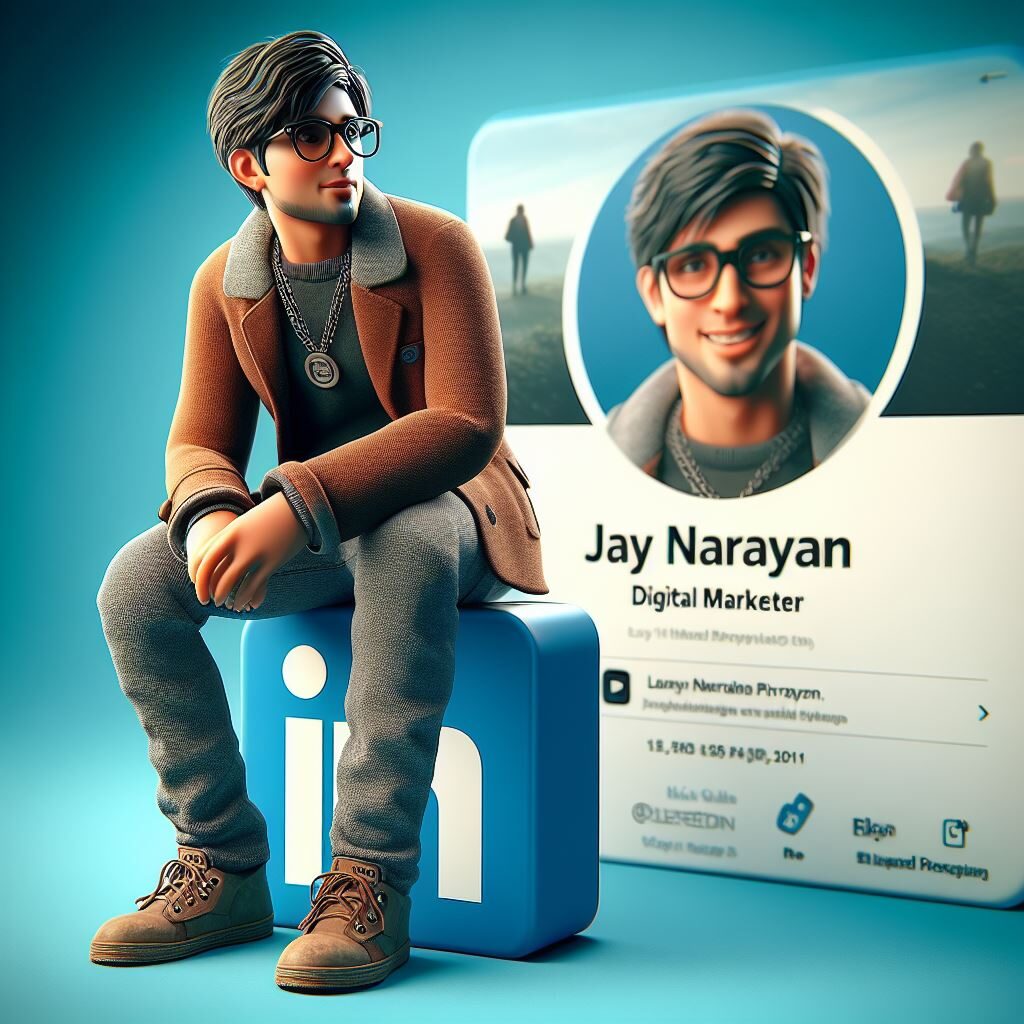Revolutionize your real estate marketing with AI tools! Unlock the power of artificial intelligence to enhance property listings, automate personalized customer interactions, and analyze market trends. From smart chatbots for instant client engagement to predictive analytics for strategic decision-making, AI transforms the real estate landscape. Elevate your listings with virtual tours, harness data-driven insights, and stay ahead in the competitive market. Embrace efficiency, precision, and innovation. Maximize your reach and impact in real estate marketing through the dynamic capabilities of AI tools. Future-proof your strategy; the future of real estate marketing is here with AI.
What are AI Tools and How Can They Help Real Estate Marketers?
AI tools, encompassing technologies that emulate human intelligence, are reshaping real estate marketing. By analyzing vast datasets, AI provides marketers with valuable insights into market trends and predictions. Personalized marketing campaigns are facilitated through AI’s ability to understand and respond to individual customer preferences. Chatbots powered by AI streamline customer interactions, offering instant responses and scheduling property viewings. Virtual tours and interactive visualizations enhance property exploration, while automated lead generation identifies potential clients more efficiently. Predictive analytics guides marketers in strategic decision-making, optimizing pricing and investment choices. AI-driven facial recognition enhances security in controlled access areas. Automated email campaigns and dynamic pricing strategies further refine marketing efforts. Property management benefits from AI automation, streamlining tasks like maintenance requests. Real estate marketers leveraging AI tools gain efficiency, data-driven precision, and a competitive advantage in meeting evolving market demands.
ChatGPT – AI-Powered Chatbot for Real Estate
ChatGPT, the cutting-edge AI-powered chatbot designed to revolutionize the real estate experience. Imagine instant customer engagement where ChatGPT responds promptly to inquiries, providing detailed information about properties, pricing, and availability. With a personalized touch, this chatbot tailors interactions based on user preferences, offering bespoke property recommendations that align with individual needs.
Enhancing the virtual exploration of properties, ChatGPT guides users through immersive virtual tours, providing a dynamic experience that fosters understanding and interest. The convenience of automated appointment scheduling ensures a streamlined process for property viewings, making it seamless for both clients and real estate professionals.
ChatGPT doesn’t just engage; it’s a valuable tool for market insights. Analyzing real estate data, it offers valuable information on trends, pricing strategies, and investment opportunities. Beyond engagement, ChatGPT actively identifies and collects information for potential leads, facilitating follow-up communication to nurture client relationships.
With 24/7 availability and multilingual support, ChatGPT breaks barriers, making real estate services accessible anytime and to a diverse clientele. Prioritizing data security, ChatGPT ensures robust measures to protect client information, establishing trust and reliability.
Empower your real estate business with ChatGPT – the AI chatbot that transforms customer interactions, optimizes workflow efficiency, and positions your services at the forefront of innovation in the competitive real estate market. Elevate your client experience and embrace the future of real estate with ChatGPT!
Benefits of AI Tools to Real Estate Marketers
AI tools present invaluable advantages to real estate marketers. Through advanced data analysis, these tools offer profound insights into market trends, enabling marketers to make informed decisions on pricing, strategy, and investment. Personalized marketing thrives as AI interprets customer behavior, tailoring campaigns for maximum impact and engagement.
Efficient customer interaction is facilitated by AI-powered chatbots, providing instant responses, scheduling appointments, and enhancing overall responsiveness. Virtual tours and visualizations, made possible by AI, elevate property showcasing, allowing potential buyers to explore spaces remotely.
Automated lead generation streamlines the identification of potential clients, expediting the sales process. Predictive analytics guides strategic decision-making, ensuring marketers stay ahead in a competitive landscape. With 24/7 availability and multilingual support, AI tools empower marketers to cater to diverse audiences and maintain a competitive edge in the dynamic real estate market.
AI Tools to Enhance Customer Experience
AI tools are revolutionizing customer experiences across industries, and in real estate, their impact is transformative. Firstly, AI-driven chatbots provide instant and personalized responses to customer queries, ensuring round-the-clock engagement and efficient communication. This not only enhances responsiveness but also contributes to a positive and seamless customer experience.
Virtual assistants powered by AI simplify property searches by understanding user preferences, delivering tailored recommendations, and providing relevant information. Through predictive analytics, AI anticipates customer needs, enabling proactive and personalized interactions. This enhances customer satisfaction by delivering relevant content, whether in property recommendations, pricing details, or market trends.
Moreover, AI tools enable immersive experiences such as virtual property tours, allowing customers to explore homes remotely. This not only provides convenience but also a more engaging and interactive way to evaluate potential properties.
In summary, AI tools elevate customer experiences in real estate by offering instant responses, personalization, proactive assistance, and immersive interactions. Embracing these technologies not only meets evolving customer expectations but also positions real estate businesses at the forefront of innovation and customer-centric service delivery.
Generative AI Videos – Automating Video Creation
Generative AI is revolutionizing video creation by automating the process and introducing unprecedented efficiency and creativity. These AI-driven systems use deep learning algorithms to analyze patterns, understand content, and generate compelling videos. One remarkable aspect is the ability to create videos from scratch based on minimal input.
With generative AI videos, marketers can automate content production, saving time and resources. These systems are capable of understanding the desired style, tone, and branding, ensuring consistency across various marketing materials. This not only expedites the content creation process but also enhances the overall brand identity.
Furthermore, generative AI enables personalized video content at scale. By analyzing user data and preferences, these systems can tailor videos to specific target audiences, improving engagement and resonance. This level of personalization can significantly impact marketing effectiveness.
Additionally, generative AI videos excel in adapting to trends and market dynamics. Whether it’s adjusting content based on real-time data or incorporating the latest visual styles, these systems ensure that the generated videos remain relevant and captivating.
In summary, generative AI videos represent a groundbreaking shift in automating and enhancing video creation, providing marketers with a powerful tool to streamline processes, ensure consistency, achieve personalization at scale, and stay dynamically aligned with market trends.
AI Video Generator – Automating Video Creation
The advent of AI video generators marks a groundbreaking leap in automating video creation, revolutionizing how content is produced, and providing unparalleled efficiency and versatility. These cutting-edge systems leverage advanced machine learning algorithms to understand patterns, context, and user preferences, enabling the automatic generation of high-quality videos.
One of the primary advantages lies in the time and resource savings achieved through automation. AI video generators streamline the traditionally labor-intensive video creation process, allowing marketers to produce compelling content rapidly. This not only accelerates production timelines but also reduces costs associated with manual editing and production.
Moreover, AI video generators bring a new level of personalization to content creation. By analyzing user behavior and preferences, these systems tailor videos to specific audiences, ensuring more engaging and relevant content. This personalized touch enhances audience connection and increases the likelihood of meaningful interactions.
Additionally, AI video generators adapt to emerging trends seamlessly. They can analyze real-time data, stay abreast of industry shifts, and incorporate the latest visual styles, keeping generated videos current and captivating.
In essence, AI video generators represent a transformative tool for marketers, offering efficiency, personalization, and adaptability to evolving market dynamics, ultimately reshaping the landscape of video content creation.
Best AI Tools for Real Estate Marketers
Here are some of the best AI tools for real estate marketers, along with details about each:
1. Zillow:
– Description: Zillow utilizes AI algorithms for personalized property recommendations based on user preferences and behavior.
– Benefits: Enhances user experience, increases engagement, and provides targeted property suggestions.
2. BoomTown:
– Description: BoomTown is an automated marketing platform with AI capabilities, automating lead generation, nurturing, and content delivery.
– Benefits: Improves marketing efficiency, personalizes campaigns, and nurtures leads throughout the sales funnel.
3. Matterport:
– Description: Matterport uses AI for creating immersive virtual tours and visualizations of properties.
– Benefits: Enhances customer experience, enables remote property viewing, and increases engagement.
4. Revaluate:
– Description: Revaluate employs predictive analytics to identify potential leads and predict future market trends.
– Benefits: Enhances decision-making, optimizes pricing strategies, and identifies high-value leads.
5. Salesforce with Einstein Analytics:
– Description: Salesforce integrates Einstein Analytics for AI-driven insights in customer relationship management (CRM).
– Benefits: Provides a comprehensive view of customer interactions, predicts customer needs, and improves communication.
6. Beyond Pricing:
– Description: Beyond Pricing uses AI for dynamic pricing, adjusting property prices based on demand, competition, and market trends.
– Benefits: Optimizes pricing for maximum returns and ensures competitiveness in the market.
7. Trulia:
– Description: Trulia employs AI algorithms for personalized property search recommendations tailored to user preferences.
– Benefits: Improves user experience, increases engagement, and delivers relevant property options.
8. Mailchimp:
– Description: Mailchimp is an email marketing platform enhanced with AI for optimizing content based on user behavior.
– Benefits: Increases open and conversion rates through personalized and timely email communication.
These tools cater to different aspects of real estate marketing, offering solutions for lead generation, customer engagement, property visualization, predictive analytics, and more. Choosing the right combination of tools based on specific business needs can significantly enhance the effectiveness of AI in real estate marketing.
Tips for Implementing AI Tools in Your Real Estate Marketing Strategies
Implementing AI tools in your real estate marketing strategies can significantly enhance efficiency and effectiveness. Here are some tips to consider:
1. Define Clear Objectives: Clearly outline your goals and objectives before implementing AI tools. Whether it’s improving lead generation, enhancing customer engagement, or optimizing pricing strategies, having a clear direction will guide your AI implementation strategy.
2. Understand Your Audience: Tailor AI tools to the preferences and behaviors of your target audience. This ensures that the implemented tools effectively resonate with potential clients and provide a personalized experience.
3. Invest in Training: Ensure that your team is adequately trained to use and understand the AI tools. This includes training on data interpretation, leveraging insights, and integrating AI seamlessly into existing workflows.
4. Choose the Right Tools: Select AI tools that align with your specific needs. Whether it’s chatbots for customer interactions, predictive analytics for market insights, or virtual tour platforms for property visualization, choose tools that complement your marketing strategies.
5. Data Quality and Security: Prioritize data quality and security. AI relies heavily on data, so maintaining accurate and reliable datasets is crucial. Implement robust security measures to protect sensitive client information and ensure compliance with data protection regulations.
6. Integration with Existing Systems: Ensure that AI tools seamlessly integrate with your existing systems and technologies. This integration enhances workflow efficiency and prevents disruptions in your marketing processes.
7. Start Small and Scale Up: Begin with a pilot project or implement AI tools in specific areas before scaling up. This allows you to assess performance, address any challenges, and refine your approach before a full-scale implementation.
8. Monitor and Evaluate Performance: Regularly monitor the performance of AI tools. Evaluate key metrics, gather feedback from users, and make adjustments as needed to optimize the tools for maximum effectiveness.
9. Stay Informed About AI Advancements: Keep abreast of advancements in AI technology. Regularly explore new tools, features, and updates that could further enhance your real estate marketing strategies.
10. Communicate Transparently: Clearly communicate to your clients and stakeholders about the incorporation of AI tools in your processes. Transparency builds trust, and clients appreciate understanding how technology is being used to improve their experience.
By following these tips, real estate marketers can successfully integrate AI tools into their strategies, realizing the full potential of these technologies to streamline operations, enhance customer experiences, and stay competitive in the market.
The more personal the better
incorporating a personal touch is crucial when implementing AI tools in real estate marketing. Here are personalized tips to make the integration seamless and client-centric:
1. Tailor Recommendations: Utilize AI algorithms to tailor property recommendations based on individual client preferences and behavior. This personalization enhances the likelihood of finding the perfect match for each client.
2. Interactive Virtual Tours: Leverage AI in virtual tours to allow clients to interactively explore properties based on their specific interests. Implement features that focus on elements that matter most to individual clients, such as interior design, outdoor spaces, or specific amenities.
3. Personalized Chatbot Interactions: Program chatbots to engage in personalized conversations. Collect data on client preferences, previous interactions, and priorities to make the chatbot interactions feel more human and attentive.
4. Individualized Email Campaigns: Incorporate AI into your email marketing campaigns to personalize content. Use client data to send personalized property suggestions, market insights, or relevant articles that align with their interests.
5. Predictive Analytics for Individual Clients: Implement predictive analytics not only for market trends but also for individual client behavior. Predict when a client might be ready to buy or sell based on their historical interactions and engagement with your platform.
6. Personalized Pricing Strategies: Use AI-driven dynamic pricing to tailor property pricing based on market demand, client budgets, and individual property features. This personalization can enhance negotiations and improve client satisfaction.
7. AI-Enhanced Customer Service: Implement AI in customer service to provide instant, personalized responses to client inquiries. Ensure that the AI system can understand the context of the conversation and address specific client concerns.
8. Client-Centric Data Security: Assure clients of personalized data security measures. Clearly communicate how their personal information is protected, building trust and confidence in your use of AI tools.
9. Customized Marketing Materials: Utilize AI tools to generate customized marketing materials for individual properties. This could include automatically generated brochures, social media posts, or digital advertisements tailored to specific client preferences.
10. Client-Focused Training: Provide personalized training to your team, emphasizing the importance of maintaining a client-centric approach. This includes understanding individual client needs and adapting communication styles accordingly.
By incorporating these personalized touches, real estate marketers can not only enhance the effectiveness of AI tools but also create a more engaging and tailored experience for each client, fostering stronger relationships and increasing overall satisfaction.
Example :
Let’s imagine a scenario where a real estate agency, “Dream Homes Realty,” implements AI tools with a highly personalized touch:
1. Tailor Recommendations: John, a potential homebuyer, visits Dream Homes Realty’s website and interacts with the AI-driven property recommendation system. The algorithm takes note of John’s preference for modern architecture and a preference for neighborhoods with good schools.
2. Interactive Virtual Tours: For properties matching John’s preferences, the AI generates interactive virtual tours that focus on modern design elements and highlights nearby schools and amenities.
3. Personalized Chatbot Interactions: Dream Homes Realty’s chatbot engages in conversations with John, remembering his previous interactions. It asks specific questions about his preferences, ensuring a more personalized and attentive experience.
4. Individualized Email Campaigns: John receives personalized emails from Dream Homes Realty featuring curated property suggestions, market insights in his preferred neighborhoods, and articles on modern home design.
5. Predictive Analytics for Individual Clients: The agency’s predictive analytics tool anticipates that John might be ready to make a purchase based on his increased engagement. The AI suggests a follow-up call to discuss potential properties further.
6. Personalized Pricing Strategies: When negotiating on a property, the AI-driven dynamic pricing tool takes into account John’s budget constraints and the unique features of the property, ensuring a personalized pricing strategy that aligns with his financial expectations.
7. AI-Enhanced Customer Service: Dream Homes Realty’s AI-driven customer service responds instantly to John’s inquiries, providing detailed information about property features, financing options, and addressing any concerns he may have.
8. Client-Centric Data Security: Dream Homes Realty reassures John about the security of his personal information, explaining the stringent measures in place to protect data privacy.
9. Customized Marketing Materials: For the property John is interested in, AI tools automatically generate customized marketing materials, including a digital brochure showcasing the modern design, proximity to schools, and other features important to him.
10. Client-Focused Training: The real estate agents at Dream Homes Realty undergo training on client-centric communication, emphasizing the importance of understanding individual client needs and adapting their approach accordingly during interactions with potential buyers like John.
In this scenario, the implementation of AI tools at Dream Homes Realty enhances the overall experience for John, offering personalized recommendations, engaging interactions, and customized information that aligns with his preferences, ultimately fostering a stronger client-agent relationship.
Conclusion :
in conclusion, unlocking the power of AI tools holds the key to a transformative era in real estate marketing. By seamlessly integrating advanced technologies into your strategies, you open doors to unprecedented efficiency, personalization, and strategic insights. From personalized chatbots providing instant responses to predictive analytics guiding market decisions, AI tools elevate every aspect of the real estate journey.
Virtual tours and dynamic pricing, powered by AI, redefine property exploration and optimize value propositions. Tailoring marketing campaigns to individual preferences becomes a reality, fostering deeper connections with clients. The 24/7 availability of AI-driven solutions ensures that engagement is not bound by time zones, providing clients with instant, personalized support.
Embracing this AI-driven evolution is not just a step into the future; it’s a leap towards a more responsive, client-centric, and competitive real estate landscape. By unlocking the power of AI tools, you position your business at the forefront of innovation, where every interaction becomes an opportunity to create a lasting impact in the dynamic world of real estate marketing. The future is now, and AI is the key that unlocks its full potential.
























